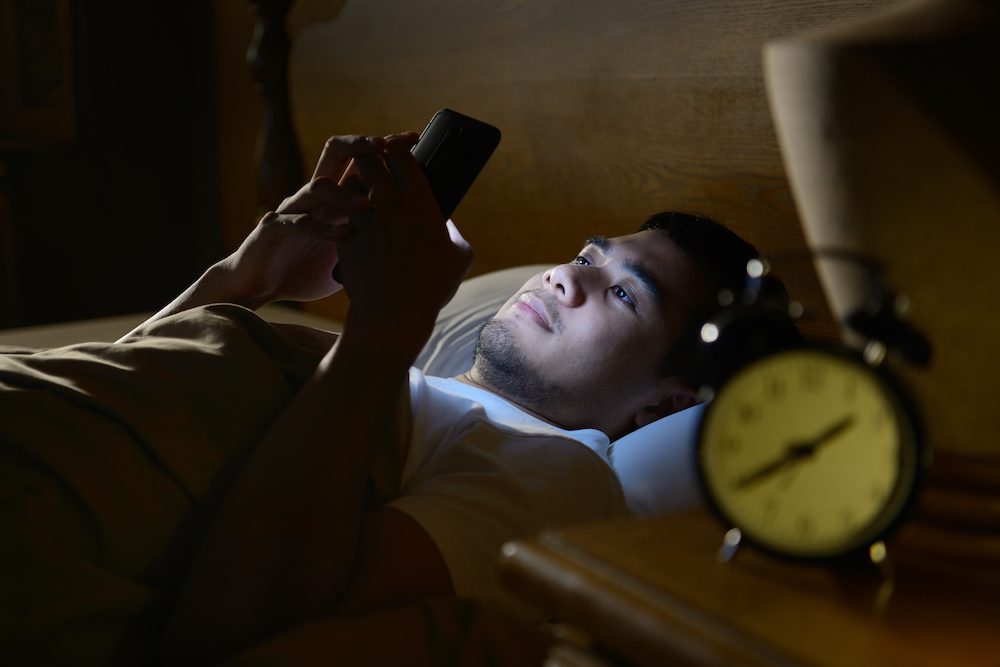Medical Disclaimer: The following content should not be used as medical advice or as a recommendation for any specific supplement or medication. It is important to consult your health care provider prior to starting a new medication or altering your current dosage.
There are many things you can do to optimize your bedroom for sleep, from adjusting the temperature to color selection. One element of a customized sleep environment that tends to get overlooked is the best direction – north, south, east, or west – to rest your head.
Some animals, like cattle and deer, align themselves along a north-south axis when they sleep, supporting the theory that animals can sense Earth’s magnetic fields. Although there isn’t strong evidence that humans share this instinct, a range of ancient philosophies and modern research indicates that sleeping along the north-south axis is preferable to the east-west axis.
Learn more what Eastern Medicine philosophies like vastu shastra and feng shui have to say about the importance of cardinal directions and other techniques for getting a better night’s sleep.
The Benefits of Sleeping to the South
Sleeping with your head to the south is thought to offer a variety of benefits, from getting a better night’s sleep to increasing your lifespan. Although the effects of sleep orientation on health and well-being have yet to be scientifically validated, some ancient Eastern Medicine philosophies have provided guidance for designing an optimal sleep environment for centuries.
Vastu Shastra
Some people believe that aligning our bodies with Earth’s north-south electromagnetic field can offer a great deal of benefits for our health and well-being. According to the ancient Indian Vedic tradition of vastu shastra, this is because like Earth, humans also have a north and south pole that allows them to be sensitive to magnetic energy in the environment.
Vastu is a set of principles for architecture and design that take into account the magnetic properties of the Earth and the Earth’s west-to-east rotation. Vastu philosophy holds that the orientation of the spaces people inhabit can have lasting effects on the health of communities and individuals. This is especially true for an activity that takes up so much time, like sleep.
According to vastu principles, the direction a person’s head is facing during sleep can either promote or hinder different aspects of overall health. South-facing sleep is preferable and believed to encourage longevity, while north-facing sleep is considered detrimental to a person’s health and should be avoided.
Feng Shui
Another ancient philosophy from China, feng shui, also places a great deal of value on the orientation of buildings and cities in relation to features of the environment. Traditional feng shui is made of two ideologies: the form school which relates design to natural topography and the compass school which orients spaces based on Earth’s magnetic field.
In traditional Chinese Medicine practices like feng shui, life energy, referred to as “Chi” or “Qi,” is said to flow along the north-south axis of the Earth’s magnetic field. The practice of feng shui involves a careful consideration of the material elements of the environment – wood, fire, earth, metal, and water – and their orientation to one another in order to balance Chi.
Recognition of Chi and a preference for north-south orientation in building and community design dates back to the Chinese Bronze age, which began around 2000 B.C. Across China, houses continue to be built facing south when possible.
According to feng shui, different cardinal directions have different meanings or values. When applied to bedroom orientation, direction of sleep may depend upon balancing Chi with other features of the room, like the placement of doors.
Scientific Research
Guided in part by these ancient beliefs about how sensitive humans are to the magnetic energy of the Earth, modern-day scientists use current technology and knowledge of human biology to answer questions about the health effects of sleeping orientation.
Although there are a limited number of studies on this topic, recent research has shown that sleeping with your head to the south may promote better sleep, heart health, and mental health.
When comparing beds oriented east-to-west to those going north to south, people sleeping in the north-to-south beds had better sleep quality. People had more interrupted sleep when sleeping east-to-west as compared to north-south, and slept for less time overall in the east-to-west facing beds.
People who change the direction of their sleep to lay their heads to the south have been found to have lower blood pressure, heart rate, and stress hormone levels.
Sleeping in Other Directions
According to vastu philosophy, sleeping along an east-west axis may be beneficial, but only with your head pointed to the east, which is believed to promote enlightenment. Sleeping to the west, like sleeping to the north, should be avoided.
Some research has shown that when people sleep with their heads towards the south or east for several months and then change direction to the north or west, their heart rate and blood pressure both increase.
Sleeping towards the north appears to have the most negative effects. Northward sleeping is correlated with restless sleep and even aggression. And, people sleeping with their head towards the north have reported lower self-rated mental health than people sleeping with their heads in other directions.
Other Eastern Medicine Practices to Improve Sleep
In addition to the importance of design and orientation principles of feng shui and vastu shastra, Eastern Medicine provides a wealth of information on better sleep and wellness. The use of herbal medicines or mind-body exercises may be helpful for anyone looking to improve their sleep habits.
It is important to consult with a health care provider for guidance before integrating any new practices into your wellness routine.
Chinese Herbal Medicines
In China, people often use traditional Chinese medicine and conventional medication for insomnia simultaneously. This integrative approach has been investigated in a number of research studies, which have shown people experience an improvement in sleep quality when herbal medicines were combined with prescription insomnia drugs when compared to a placebo.
Chinese herbal medicine often involves a combination of multiple herbs into a single product. There are a variety of mixtures, including some that have been researched for their potential to improve sleep.
- Guizhi Gancao Longgu Muli: Made of cassia, licorice, longgu, and oyster shell, Guizhi Gancao Longgu Muli has been shown to help improve sleep quality and may be used to treat insomnia.
- Shumian: Shumian is a proprietary mixture of ingredients, including the amino acid tryptophan. It can be used to treat insomnia and depression and may improve sleep quality.
- Sour Jujube Seeds: As a treatment for insomnia, sour jujube seeds can be used in combination with other medications or on their own.
- Wuling: Wuling is an herbal medicine with a main ingredient based on the nutritionally rich Xylaria nigripe fungus. It can be used in combination with conventional medications to treat insomnia.
As with all herbal medications, it is important to consult a doctor about the risks or side effects of these herbal treatments, as many supplements and herbal medicines can cause liver problems.
Ayurvedic Medicine: Ashwagandha
Ayurveda, or ayurvedic medicine, refers to a set of traditions from India dating as far back as 1500 BCE. Herbal treatments are only one aspect of ayurveda, which also can include meditation, yoga, and breathing exercises.
Ashwagandha is an evergreen shrub commonly suggested for insomnia in ayurvedic practice. Evidence is mixed on its effectiveness, but it has been found to improve sleep quality more than placebo, including in people without clinically diagnosed insomnia.
Ashwagandha can cause health effects and it may interact with some medications. People interested in Ashwagandha, especially people who are pregnant or have autoimmune disorders, should talk with their health care provider about whether it is appropriate for their situation.
Mind-Body Exercise
Mind-body interventions, or habits that combine exercise and meditation may help you get a better night’s sleep.
Traditional Chinese exercise has positive effects when it comes to a variety of symptoms, from joint pain to cognitive performance. It may also promote better sleep quality for people in general, and especially people with cancer-related sleep problems.
Qi Gong is a Chinese mind-body practice meant to help people regulate their Chi with internal mediation and external whole body movements. This practice has been linked to improved mental health and sleep quality. Tai Chi is technically a type of Qi Gong.
In adults of all ages, mind-body interventions have been shown to help alleviate sleep complaints. But, older adults in particular may benefit from practicing multiple types of mind-body exercises, including yoga, Qi Gong, and Tai Chi, to help improve both their quality of sleep and quality of life.
References
Ask the Sleep Doctor
Have questions about sleep? Submit them here! We use your questions to help us decide topics for articles, videos, and newsletters. We try to answer as many questions as possible. You can also send us an email. Please note, we cannot provide specific medical advice, and always recommend you contact your doctor for any medical matters.




